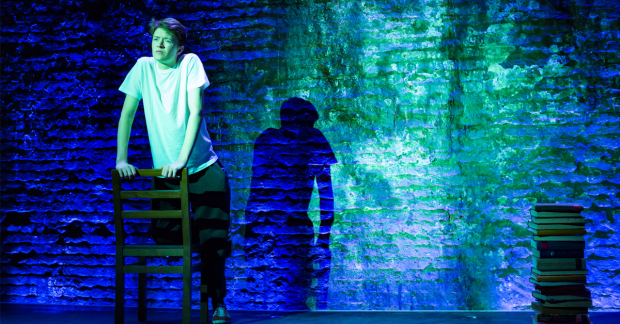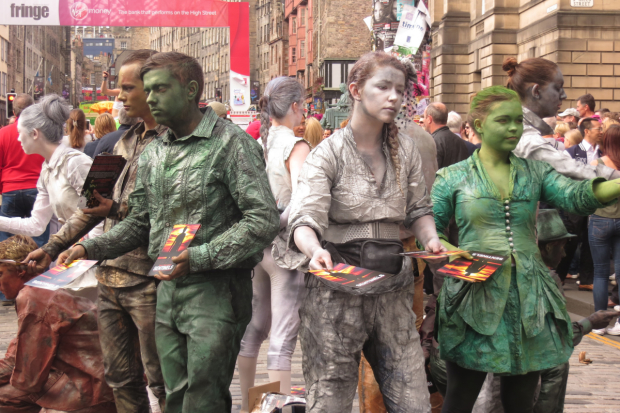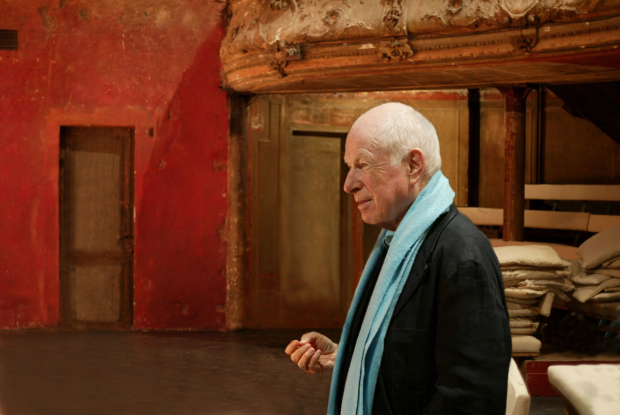Review: Silk Road (Trafalgar Studios)

© Nick Rutter
SWIM – noun, internet slang. Acronym for "Someone Who Isn't Me". Used by those cloaking their identities while discussing illicit transactions on the dark net. Example: "SWIM is selling ten grams of cocaine. Anyone keen?" As heard on Silk Road, an infamous, defunct web marketplace which gives its name to Alex Oates' show about a youngster who spirals into selling drugs online.
SWIM made Silk Road, the production, possible. An anonymous donation in 2014 – made in Bitcoin – was enough to take this production to Edinburgh, and the Vault Festival. A great thing, surely? No play had ever been funded in such a way. But then again, this was a time of peak horror over the unregulated internet, digital currencies and all. The real-life Silk Road had just been shut down by the FBI.
Consequently, this darkly comic play deals in some very murky ambiguities. After all – one person's swashbuckling libertarian is another person's sordid pirate. And Silk Road has plenty of those.
The story is about Bruce (Josh Barrow), a young man who lives with his Nan in a depressed town in north-east England. He is force-fed fantasies at school – Treasure Island the worst of them – but evidently lacks realistic opportunities in life. The situation is made apparent when his summer crush disappears to university – leaving him all alone with a drug habit for which she is responsible. All this makes for a coming-of-age tale of a rather sour kind.
This is a one-man show, but the star makes you forget it. Barrow has a portfolio of characters to rival even the grotesque and poignant personalities of Trainspotting. These are the play's best feature.
We have Shaggy: a volatile, coked-up nightclub owner who's beloved by the local elderly. Or his bouncer: a big beefcake who happens to love musical theatre. These well-drawn, memorable figures are an ideal foil to Bruce himself. Bright-eyed and with a soft Geordie accent, Barrow makes the young lad appear ultra-malleable as he slides into a world of online anonymity.
Through the character of the sweet Nan (once again Barrow) we see that the dark web is actually no conventional shady criminal underworld, but a network that's hiding in plain sight. With a small army of friends, Nan knits tea cosies, unaware Bruce is slipping cocaine into them for dispatch all over the country by the Royal Mail. It appears crime is as banal as that. The real-life mastermind of the Silk Road website was finally arrested nowhere more exotic than at a library in San Francisco.
While Oates has said he wrote the play to highlight the shortcomings in drug laws – to argue that society's real victims are overlooked in the overall political fight – its 50-minute length dictates that implications, only, can be made. Silk Road is just a quick hit; a moreish thing. There is still less time to mount a real defence of online libertarians, which is something else Oates seems to have aimed for.
But for our money, the show works better as a cautionary tale. While funny in many parts, you are likely to remember it as a voyage through this perturbing future – in fact not the present that we all currently live in. It's a present with invisible forces manipulating us online – and young, plugged-in people at the greatest risk. Oates' historic, Bitcoin-funded play strikes you as something we could one day look back on from a nearing dystopia – and say, well the signs were there.
















